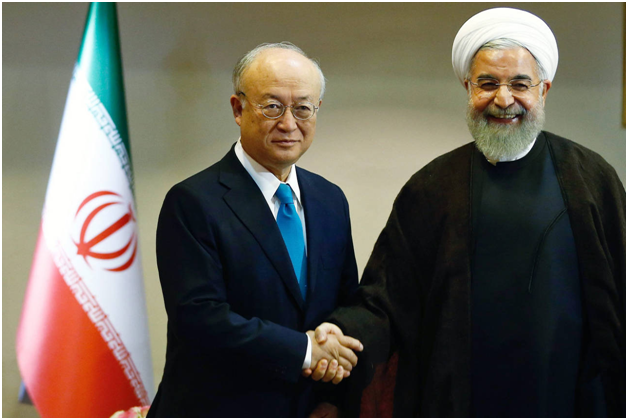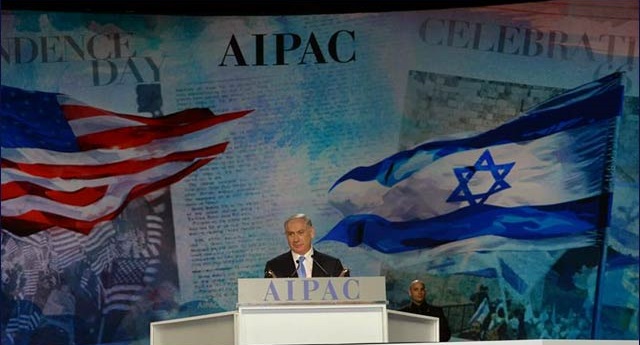Will the UN Side Deal Kill Obama’s Iran Nuke Deal?
The swirl of controversy in the wake of Wednesday’s AP exclusive story deepened yesterday with contradictory statements from IAEA director General Yukia Amano. Amano released a statement saying the report was “misleading,” that he was satisfied with the access his people will receive under the deal. Referring to the AP report Amano said “Such statements misrepresent the way in which we will undertake this important verification work.” The AP story cited drafts of a separate inspection protocol about Iran being granted control over inspections of the disputed Parchin test site allegedly involved with tests of nuclear triggers a decade ago.
The IAEA is charged with developing a so-called Road Map of prior military developments upon hinges release of over $100 billion in sanctioned funds to the Islamic Republic of Iran in December 2015. A few weeks ago , when IAEA chief Amano briefed Senators on Capitol Hill, many came away less than impressed by his presentation of the inspection regime that Administration negotiators, Secretary of State Kerry, Undersecretary Sherman and Energy Secretary Dr. Earnest Moniz said were” intrusive and robust verification” of Iran’s compliance with the JCPOA provisions. Sen. Tom Cotton (R-AK) and Rep. Mike Pompeo (R-KS) weren’t satisfied and conducted their own due diligence at IAEA headquarters in Vienna. In an August 2, 2015 Wall Street Journal op-ed they argued that the so-called secret side deals should be released in compliance with the requirements of the Iran Nuclear Review Agreement Act. They commented:
Weaponization lies at the heart of our dispute with Iran and is central to determining whether this deal is acceptable. Inspections of Parchin are necessary to ensure that Iran is adhering to its end of the agreement. Without knowing this baseline, inspectors cannot properly evaluate Iran’s compliance. It’s like beginning a diet without knowing your starting weight. That the administration would accept side agreements on these critical issues—and ask the U.S. Congress to do the same—is irresponsible.
AP, Fox News and other media obtained copies of Separate Agreement II leaked by an anonymous senior IAEA official revealing that the IAEA had adopted a protocol for the PMS Road Map giving Iran complete authority over soil sampling, video and photographic evidence at the disputed Parchin Site. Armin Rosen of Business Insider revealed the text in his report:
Separate arrangement II agreed by the Islamic State of Iran and the International Atomic Energy Agency on 11 July 2015, regarding the Road-map, Paragraph 5
Iran and the Agency agreed on the following sequential arrangement with regard to the Parchin issue:
1. Iran will provide to the Agency photos of the locations, including those identified in paragraph 3 below, which would be mutually agreed between Iran and the Agency, taking into account military concerns.
1. Iran will provide to the Agency videos of the locations, including those identified in paragraph 3 below, which would be mutually agreed between Iran and the Agency, taking into account military concerns.
1. Iran will provide to the Agency 7 environmental samples taken from points inside one building already identified by the Agency and agreed by Iran, and 2 points outside of the Parchin complex which would be agreed between Iran and the Agency.
1. The Agency will ensure the technical authenticity of the activities referred to in paragraphs 1-3 above. Activities will be carried out using Iran’s authenticated equipment, consistent with technical specifications provided by the Agency, and the Agency’s containers and seals.
1. The above mentioned measures would be followed, as a courtesy by Iran, by a public visit of the Director General, as a dignitary guest of the Government of Iran, accompanied by his deputy for safeguards.
6. Iran and the Agency will organize a one-day technical roundtable on issues relevant to Parchin.
Rosen went on to write:
The final text confirms that at least one aspect of the IAEA’s road map — the agreement meant to resolve the agency’s numerous outstanding questions on the status of Iran’s nuclear weaponization program — was settled on terms favorable to Iran.
Iran has barred IAEA inspectors from Parchin despite nearly a decade of requests for access. The roadmap, which is meant to settle years of unanswered questions about Iran’s nuclear weaponization drive, apparently doesn’t change that.
If the Parchin investigation is happening on Tehran’s terms, it raises the possibility that the rest of the roadmap inquiry will be carried out under a process that Iran can strongly influence or even control.
This is by design: As Ali Akbar Salehi, the head of Iran’s atomic energy agency told regime-linked media in early August, one of Iran’s negotiating objectives was limiting the IAEA’s reach inside of the country, according to a report from the Washington Institute for Near East Studies:
We do not have an optimistic view of the [IAEA]. There is no doubt that they will release the information [that we are giving them]. We need to be careful in the information that we supply to them …We are not only dealing with the agency and these spies. We are dealing with all the countries that own nuclear programs. There are formulas and methods to prevent supplying information to the agency’s inspectors. We did not know about these methods in the past and supplied some information that should not have been supplied.
Iran’s “formulas and methods” for limiting the IAEA’s reach are now apparent, at least as Parchin is concerned. Whether the Parchin arrangement is part of a larger trade off to ensure IAEA access to other, possibly more important sites is currently unknown — the other implementation agreement governing whom IAEA inspectors can talk to and what facilities they can visit as part of their investigation is still secret.
Yesterday, State Department spokesperson, Admiral John Kirby was besieged with journalists’ questions about the relinquishing of IAEA inspection to Iran on development of the Road Map. He endeavored to repeat Administration claims of being “confident and comfortable” that the Inspection regime adopted via the IAEA would provide the information for the Roadmap. Besides, as he is often wont to say, ‘we have enough evidence of what went on at Parchin and other known sites”. The skepticism of inquiring journalists was risible. I am reminded of I.F. Stone, the radical alleged KBG agent and US Journalist during the Vietnam anti-War era in Washington, whose eponymous weekly report was emblazoned with this masthead quote: “all governments are led by liars don’t believe a word they say”.
Watch this C-Span video excerpt of yesterday’s State Department briefing on the Parchin prior military developments inspection protocol:
There are those of us like Stephen and Shoshana Bryen and my colleague Ilana Freedman and this writer suggest that the IAEA will never be able to inspect the more likely venue of Iran nuclear weaponization experimentation since 2003, the Democratic People’s Republic of Korea.
Given the revelations of the AP and other media news stories, Members of both Chambers of Congress who favor the President’s position might reassess their positions and request vigorous due diligence gathering all of the side agreements for the JCPOA, prior to casting a vote by the mid-September on the pending resolution . Otherwise, they might, as Senator Menendez warned in his Seton Hall University address this week, they might find having their names added to Iran’s bomb.
EDITORS NOTE: This column originally appeared in the New English Review. The featured image is of IAEA Director General Yukia Amano and Iranian President Hassan Rouhani, Tehran, July 2, 2015. Source: Europhoto.



 This Times
This Times